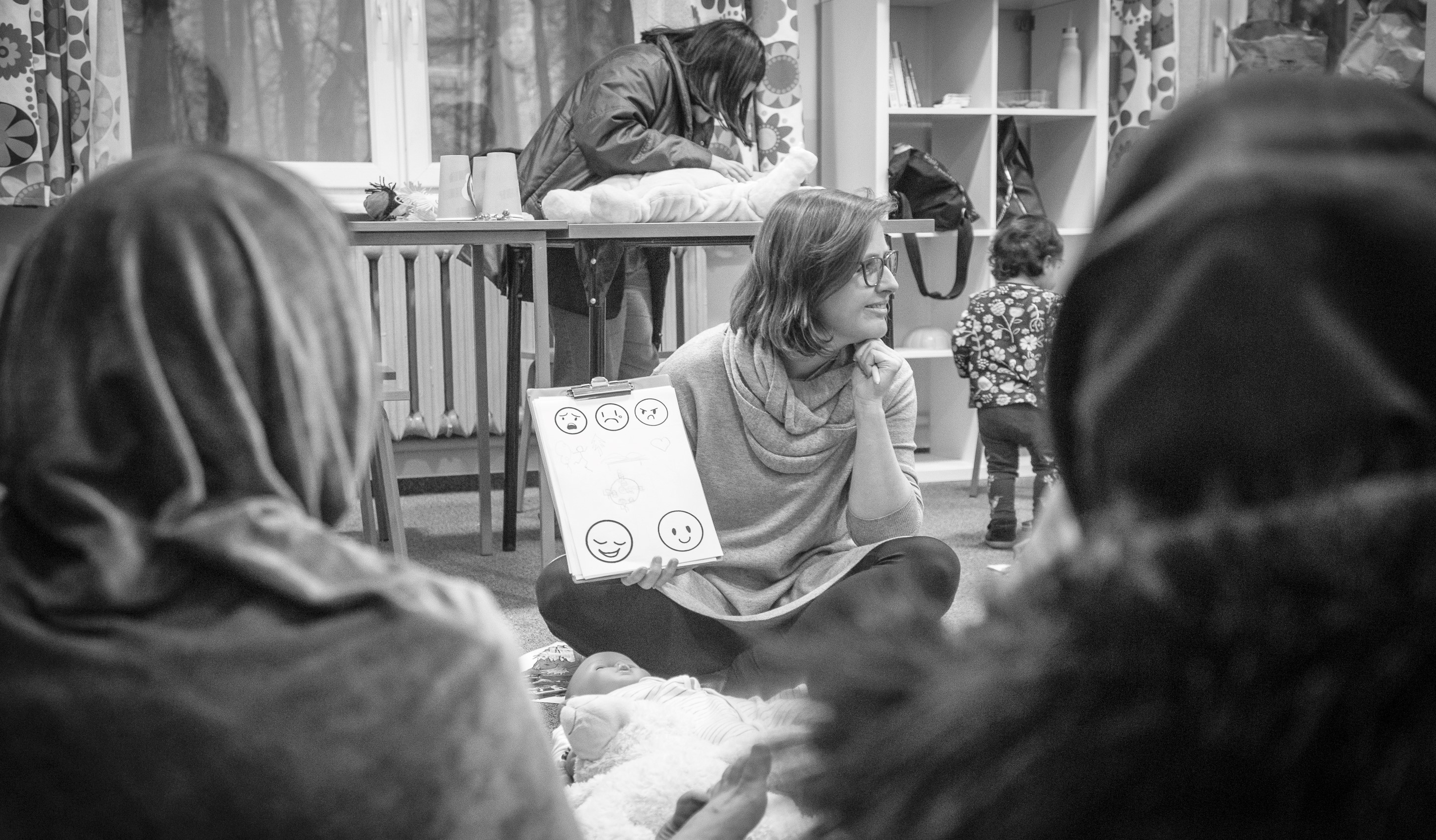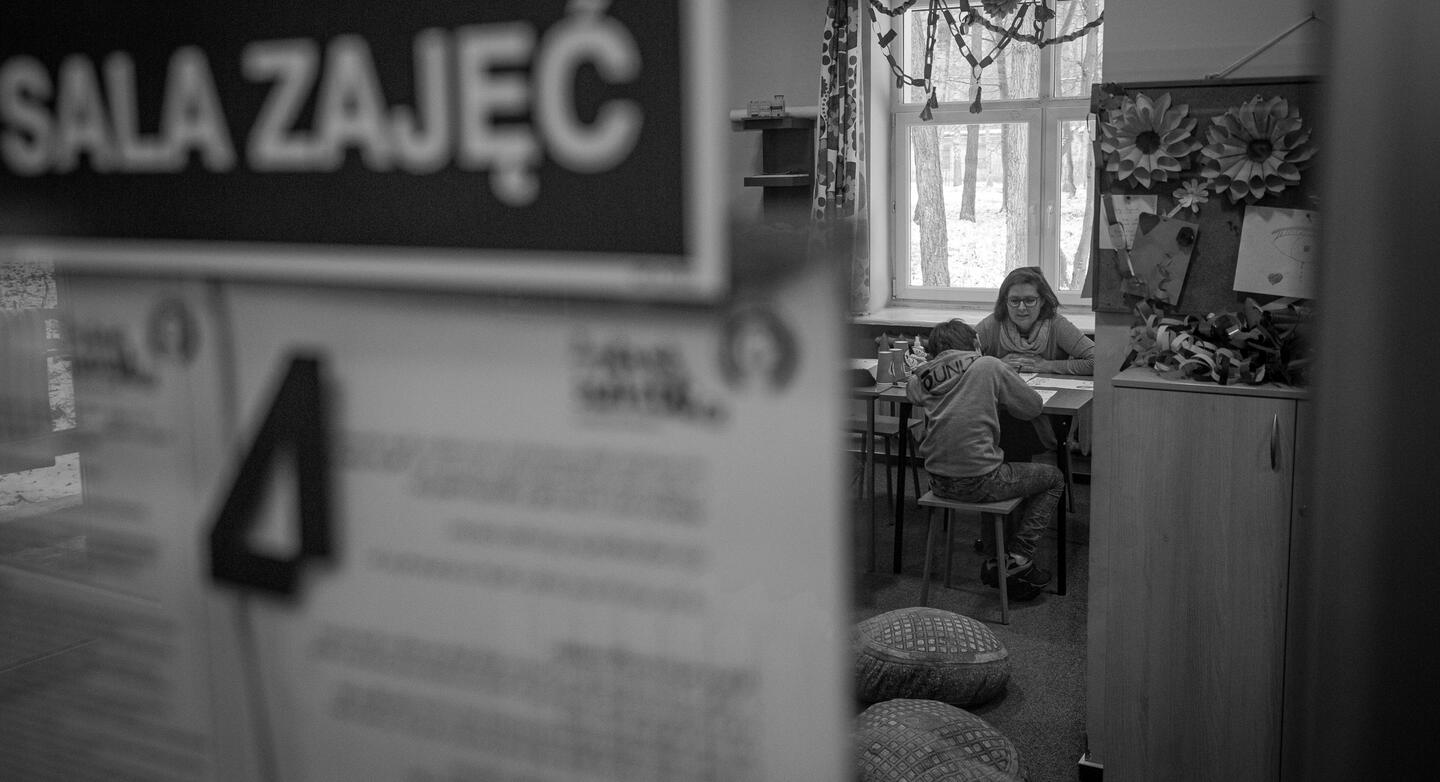Since the outbreak of the war, 3.2 million people have crossed the Polish-Ukrainian border. In comparison, 1.3 million people applied for asylum in the then 28 Member States of the EU, Norway and Switzerland during the refugee crisis in 2015.
This large number of refugees to Poland over a few weeks has been extremely challenging, and the support the Polish society has been able to give the people fleeing the war, has impressed the world.
Prior to the war in Ukraine, more than 50 Polish civil society organisations were specialised to work with refugees and migrants. Since 2009, Iceland, Liechtenstein and Norway, through the EEA and Norway Grants, have been funding many organisations helping refugees in Poland.
The rights of refugees and migrants are also an important pillar of the Active Citizens Fund, the civil society programme of the EEA and Norway Grants. In the past two years, over 30 Polish migration and refugee projects have been made possible with its help.
Among them is the Emic Foundation in Toruń that offers legal counselling to refugees and training on multiculturalism for offices that have contact with people with migration experience.
Another example is the Ocalenie Foundation in Warsaw. The foundation uses the support to document rights violations on the Polish-Belarus border. A third one is the Empowering Children Foundation that is helping children who have fallen victims to violence or abuse.
The Grants’ investment in this important work of the civil society organisations over these years has made it possible for the organisations to step up their work and provide immediate support to Ukrainians fleeing the war, according to Agnieszka Kosowicz, who is President of the Board of the Polish Migration Forum.
“Thanks to the support from the EEA and Norway Grants this work has now been possible. The Grants were key in keeping us alive, seven years ago we considered closing the office,” says Kosowicz.
Managing Director Henning Stirø of the Financial Mechanism Office, managing the EEA and Norway Grants, points out that achieving these long-term results is at the core of the work of the Grants.
“The strength of the EEA and Norway Grants is more long-term systematic capacity building, rather than emergency support”, says Stirø.

However, in addition to the funding already made available to the civil society organisations over the years, Iceland, Liechtenstein and Norway now accept the use of the EEA and Norway Grants to address the humanitarian crisis caused by the war in Ukraine in a flexible and quick manner.
“It is important to us that the EEA and Norway Grants do not operate in a vacuum but take into account the changing realities in several of our recipient countries,” said the Norwegian Minister of Foreign Affairs Anniken Huitfeldt in an address to the Norwegian Parliament on 3 May.
This has resulted in more than 10 million euro being allocated to help the refugees in the neighbouring countries so far, the larger part of this in Poland. The funds will support initiatives needed to help the neighbouring country address and facilitate the handling of the growing humanitarian emergency.
Supporting civil society organisations and ensuring that Europe's fundamental values are protected is at the heart of the Grants. Learn more about the EEA and Norway Grants Civil Society programmes in Poland here on eeagrants.org and on the sites of the Active Citizens Fund Poland National and Regional.
